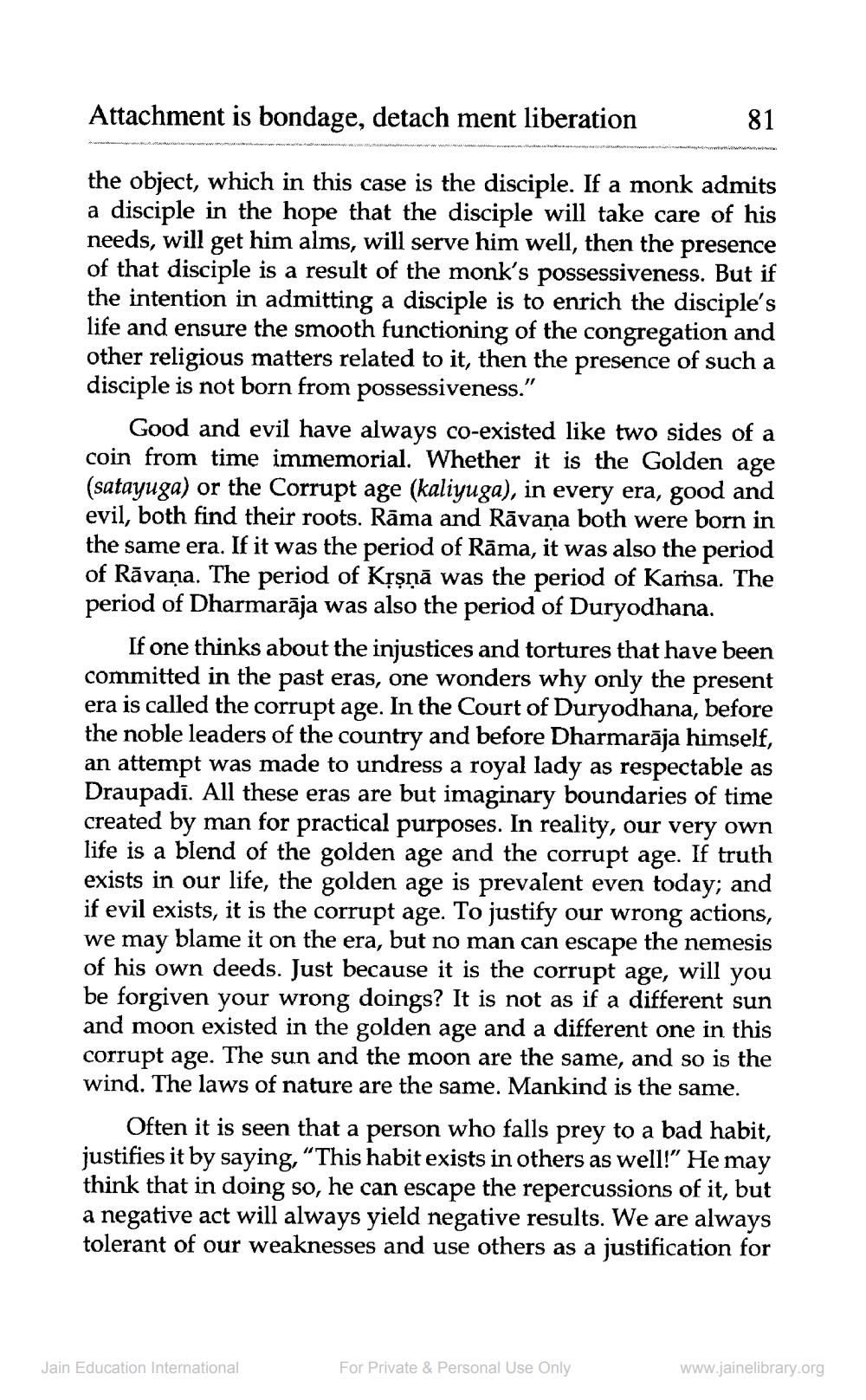________________
Attachment is bondage, detach ment liberation
81
the object, which in this case is the disciple. If a monk admits a disciple in the hope that the disciple will take care of his needs, will get him alms, will serve him well, then the presence of that disciple is a result of the monk's possessiveness. But if the intention in admitting a disciple is to enrich the disciple's life and ensure the smooth functioning of the congregation and other religious matters related to it, then the presence of such a disciple is not born from possessiveness."
Good and evil have always co-existed like two sides of a coin from time immemorial. Whether it is the Golden age (satayuga) or the Corrupt age (kaliyuga), in every era, good and evil, both find their roots. Rāma and Rāvana both were born in the same era. If it was the period of Rāma, it was also the period of Rāvana. The period of Krşņā was the period of Kaṁsa. The period of Dharmarāja was also the period of Duryodhana.
If one thinks about the injustices and tortures that have been committed in the past eras, one wonders why only the present era is called the corrupt age. In the Court of Duryodhana, before the noble leaders of the country and before Dharmarāja himself, an attempt was made to undress a royal lady as respectable as Draupadī. All these eras are but imaginary boundaries of time created by man for practical purposes. In reality, our very own life is a blend of the golden age and the corrupt age. If truth exists in our life, the golden age is prevalent even today; and if evil exists, it is the corrupt age. To justify our wrong actions, we may blame it on the era, but no man can escape the nemesis of his own deeds. Just because it is the corrupt age, will you be forgiven your wrong doings? It is not as if a different sun and moon existed in the golden age and a different one in this corrupt age. The sun and the moon are the same, and so is the wind. The laws of nature are the same. Mankind is the same.
Often it is seen that a person who falls prey to a bad habit, justifies it by saying, “This habit exists in others as well!" He may think that in doing so, he can escape the repercussions of it, but a negative act will always yield negative results. We are always tolerant of our weaknesses and use others as a justification for
Jain Education International
For Private & Personal Use Only
www.jainelibrary.org




